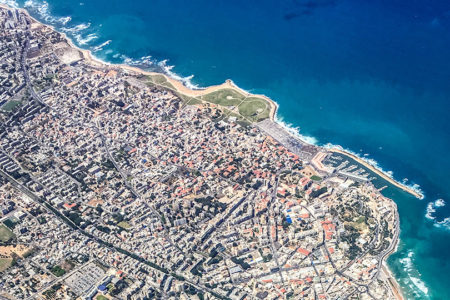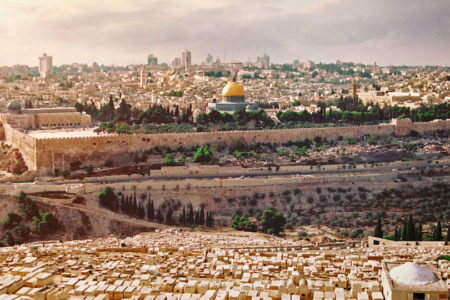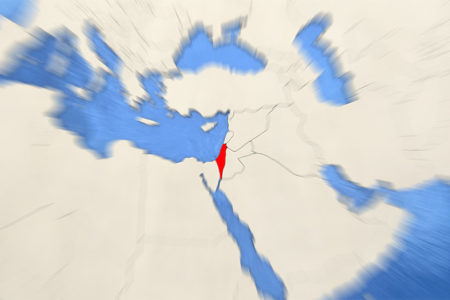The Emerging Realignment
Saudi Arabia recently granted Air India permission to fly over its territory on new routes to and from Israel. The decision to open Saudi airspace to commercial jets bound for the Jewish state ended a 70-year ban on such flights and reflected thawing ties between Israel and the Arab kingdom.
“This is a historic evening,” said Israeli Transportation Minister Yisrael Katz when the jet landed at Ben Gurion Airport in Tel Aviv. “The Israeli skies are connecting with the Saudi Arabian skies in one direct flight. We are celebrating the strengthening relations with India and the first civilian connection with Saudi Arabia and the Gulf states.”
A few weeks later, Saudi Crown Prince Mohammed bin Salman publicly recognized Israel’s right to exist. When asked if he believes the Jewish people have a right to a nation-state in their ancestral homeland, the 32-year-old de facto ruler of Saudi Arabia replied, “I believe that each people, anywhere, has a right to live in their peaceful nation. I believe the Palestinians and the Israelis have the right to have their own land.”
The remarks, long taboo in a country that was fiercely opposed to Israel’s creation in 1948 and still does not recognize the Jewish state, underscore the important realignment taking place in the Middle East: Iran’s pursuit of regional hegemony is driving strategic convergence between Israel and Saudi Arabia—both of which view Iran as an existential threat.
Iran is on the ascendency. The destruction of Saddam Hussein’s regime in Iraq in 2003, which removed a Sunni Arab strategic counterweight to Shia Iran, created a massive power vacuum that Tehran quickly filled. Since then, Iran has greatly expanded its influence in Syria by aligning with Russia to support the government of Bashar al-Assad.
Tehran’s goal in Syria has been to build a land bridge between Iran and Lebanon, home to Hezbollah, the Iranian proxy dedicated to the destruction of Israel. Iran’s geopolitical ambitions have been aided by a nuclear deal that lifted crippling economic sanctions on Tehran and enabled it to fund proxy wars throughout the Middle East, including in Yemen, from where Iranian-backed rebels have fired missiles into Saudi Arabia.
“Unfortunately, the U.S. left a vacuum in the region which was filled by the Russians in Syria and by the Iranians and their proxies in other parts of the Middle East,” according to Kobi Michael, a research fellow at Tel Aviv University. “Israel,” he said, “is perceived as the most reliable potential ally. Therefore, the Saudis understand pretty well that it is a good time to be good friends with Israel.”
Middle East expert Sebastian Sons concurs. “Saudi Arabia doesn’t have a lot of strong allies left who could confront Iran, which is why Israel has become its second-most important military ally, right after the United States.”
Israel’s Chief of Staff, General Gadi Eisenkot, in a recent interview with UK-based Saudi newspaper Elaph, said Israel was ready to exchange intelligence with the Saudis in order to confront Iran. “There are shared interests and as far as the Iranian axis is concerned we are in full accord with the Saudis,” he said.
Speaking at the World Economic Forum in Davos, Switzerland, Israeli Prime Minister Benjamin Netanyahu said stronger strategic alliances with Arab countries were necessary to confront Iranian expansionism. “There is an alignment of Israel and other countries in the Middle East that would have been unimaginable 10 years ago,” he said. “Certainly in my lifetime, [I’ve never seen] anything like it, and I’m at the age of the State of Israel more or less, so it’s an extraordinary thing.”








Great news! Now maybe they could work on doing something about the persecution of Christians in Saudia Arabia and India.